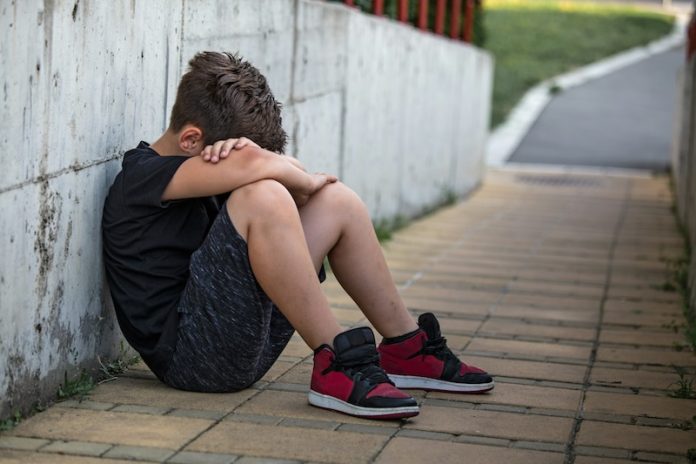
A new study published in Child Maltreatment reveals that adults who experienced both physical and sexual abuse during childhood are twice as likely to suffer from a wide range of physical and mental health problems later in life.
These include conditions such as angina, arthritis, asthma, chronic obstructive pulmonary disease (COPD), heart attacks, depression, and disability.
The study, led by researchers at the University of Toronto’s Institute for Life Course and Aging, used data from the 2021 and 2022 Behavioral Risk Factor Surveillance System, a large U.S. health survey that included over 80,000 adults.
By comparing those with and without histories of abuse, researchers were able to show just how deeply early trauma can affect long-term well-being—even after accounting for factors such as age, race, income, obesity, and health habits like smoking or exercise.
Adults who had been sexually abused but not physically abused were found to be 55% to 90% more likely to experience these health problems than those who had not experienced any childhood abuse.
Those who had been physically abused but not sexually abused also showed increased risks, though to a lesser extent—with a 20% to 50% greater chance of developing health issues compared to non-abused peers.
“People don’t typically think about the impact early adversities can have on health outcomes later in life,” said lead author Shannon Halls, a research coordinator at the University of Toronto. “Our research underscores the harmful associations between early adversities, such as sexual and/or physical abuse, and a wide range of health issues in adulthood.”
But the study also offers hope. The presence of a protective adult in the home—someone who made the child feel safe and supported—was linked to better health outcomes in adulthood, even among those who had been abused.
“When children experiencing abuse had a protective adult in their home, the negative impact of abuse on their health as adults was less severe,” said co-author Andie MacNeil, a doctoral student at the university’s Factor-Inwentash Faculty of Social Work (FIFSW).
While more research is needed to understand exactly how this support works, the findings suggest that strong, safe relationships with adults can help buffer children from the worst long-term effects of abuse.
The protective effect of a caring adult wasn’t limited to children who had experienced abuse. Children who lacked such a relationship, regardless of whether they were abused or not, were 20% to 40% more likely to suffer from poor physical health later in life, and twice as likely to struggle with depression as adults.
“The implication here is that lacking safe and stable relationships with adults can be just as harmful to children’s health as being physically abused,” said Professor Esme Fuller-Thomson, senior author of the study and Director of the Institute for Life Course and Aging.
The authors call for more research into why some adults in a child’s life may fail to provide a protective environment. “It will be important to investigate why some adults are not adequately protective of children,” said co-author Philip Baiden, Associate Professor at the University of Texas at Arlington.
“We also need to explore potential prevention strategies that can help parents and caregivers provide safer, more supportive homes.”
This study adds to a growing body of evidence showing that childhood trauma is a major public health issue. Abuse in early life doesn’t just affect emotional development—it has real, measurable effects on the body that can last decades.
These effects include increased inflammation, higher stress hormone levels, and even changes in how the brain and immune system function, all of which may contribute to chronic illness.
But perhaps the most powerful takeaway from the study is the critical role of relationships. Having just one adult who provides safety, support, and consistency during childhood can make a significant difference—enough to reduce the long-term impact of abuse on a person’s health.
This finding has important implications for schools, child welfare systems, community programs, and health care providers. It highlights the value of investing in programs that promote strong relationships between children and supportive adults—whether that’s a parent, grandparent, teacher, mentor, or coach.
It also suggests that abuse prevention isn’t the only answer. Early intervention and emotional support may help even when abuse has occurred. Simply put, healing can begin in the presence of a protective relationship.
As Halls noted, “We hope these findings can contribute to a better understanding for creating effective programs targeted at children experiencing abuse.” Because preventing abuse is essential—but supporting survivors may be just as critical for their long-term health and recovery.
If you care about health, please read studies that scientists find a core feature of depression and this metal in the brain strongly linked to depression.
For more information about health, please see recent studies about drug for mental health that may harm the brain, and results showing this therapy more effective than ketamine in treating severe depression.
The research findings can be found in Child Maltreatment.
Copyright © 2025 Knowridge Science Report. All rights reserved.



